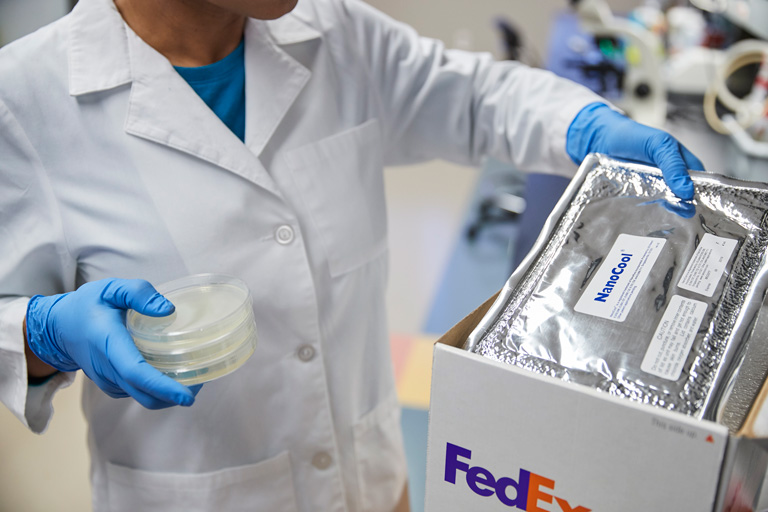4 Ways AI Has Transformed The Healthcare Industry Forever
Can the adoption of AI health-tech help save lives and improve care for the better? From pharma logistics to diagnostic treatment, Kawal Preet explores how AI is revolutionizing the healthcare industry at an unprecedented pace and scale.
One of the top Google searches around healthcare and artificial intelligence (AI) is: “Can generative AI replace nurses?” It’s a sobering thought - but the truth is, AI is already assisting today’s healthcare professionals to do their jobs with greater accuracy. Patient care will continue to evolve to become more tech-assisted as the healthcare sector adopts AI rapidly, and at scale.
AI and generative AI are transforming end-to-end healthcare globally, from early symptom detection and prevention to laboratory research, diagnosis and treatment. And it’s not just primary care. AI is also being used to manufacture pharmaceutical drugs and assist in clinical trials, while AI robotics are used for surgery, and in tracking, warehousing and packaging for critical healthcare shipments and deliveries.
So, how are the latest technologies and trends changing how we take care of our health? Right now, there are four key areas where the adoption and application of AI is rapidly increasing.
1. Improving diagnostic accuracy
Healthcare has always relied on data. Patient files and medical records have formed the basis of diagnostics and long-term patient care for doctors, nurses, pharmacists and physical therapists for centuries.
But we’re now seeing the collation and application of data in healthcare become supercharged, as AI:
• Analyzes big data to develop preventative care, including using machine learning to detect patterns
• Analyzes medical images such as X-rays, scans and charts to diagnose disease and injury quicker than a physical assessment
• Analyzes medical images such as X-rays, scans and charts to diagnose disease and injury quicker than a physical assessment

2. Supporting real-time decision-making for precision surgery
AI machines are evolving to support highly complex, precise operations performed by highly skilled surgeons. A combination of robotics and AI real-time analysis means that AI systems can guide surgeons and share up-to-the-second information, impacting critical intraoperative decision-making.
This combination of human skill and AI precision will enable a new kind of agility, helping to pre-empt and problem-solve during tricky operations. The extra layer of visibility and precision can help save lives on the operating table, as well as help educate trainee surgeons.
3. Freeing up skilled workers from repetitive tasks
One of AI’s biggest value-adds is taking on low-skill or mundane tasks - saving time for employees and companies across all kinds of industries. Healthcare is no different. AI is fast becoming an invaluable assistive tool for clinicians, replacing human labor for repetitive admin tasks.
In healthcare, this covers everything from prescription paperwork and inventory to mapping the number of available beds on a hospital ward and logging data from a clinical trial. Critically, this frees up time better spent with patients or on research projects to advance new medical breakthroughs.
AI can also take some of the burden off businesses required to deliver real-time, round-the-clock customer service support. For example, customers who call the FedEx customer hotline in Japan or Australia might be greeted by our AI-powered Intelligent Virtual Assistant (IVA).
We’re all familiar with the monotonous tones of Interactive Voice Response systems that navigate callers through a series of menus. Getting the assistance you need doesn’t always work.
With the help of AI, our IVA is designed to interact and engage with users through natural language processing. It’s trained to answer a broad range of queries with intelligence and send SMS links to queries such as bookings and status tracking where required.
Customers can still speak to an agent for more complex issues – but as the IVA is available 24/7, this new adoption of AI tech enables customers to reach us beyond regular business hours.
4. Pharma and healthcare deliveries
One of the AI developments we’ve been keeping a close eye on is healthcare delivery. Having managed end-to-end critical healthcare shipments for our pharma customers for decades, FedEx has stayed at the forefront of the latest technology and continually enhanced our services.
Sensor-based technology, real-time tracking and monitoring shipment integrity remain at the core of our healthcare deliveries. Now, AI can deliver even more insights, analyzing journey data to find future improvements in route and delivery management.

AI models can also integrate into our existing process for updating end users along the journey with status updates and real-time ETAs. For those shipping clinical trial samples, vaccines, critical organ or blood donations and other potentially life-saving deliveries, the benefits of AI can help make shipments even more seamless and risk-free.
At the end of last year, our CEO and President Raj Subramaniam set out our intentions to continue to take data to the next level as part of real-time logistics intelligence. This essentially means applying deep machine learning models to our deliveries; to map, predict and harness data for even greater precision and customer satisfaction.
One example of how we’re already using AI in our day-to-day logistics solutions is in clearance.
We’re now starting to deploy a new solution powered by Tamr, an industry-leader in AI- based data products in China and Korea, to support document processing for clearance. Tamr uses algorithms and shipment data from our current regional clearance systems to predict customer profile matching for shipments.
These predictions are then sent back to be checked by clearance agents who proceed with the preparation of declaration forms – an example of how AI is helping employees in their everyday work.
The healthcare AI landscape today – and what it might look like tomorrow
With AI tech frontrunners like Google focusing heavily on the uses of AI in healthcare, it is easy to see how the sector will transform quickly, leaving traditional models of patient care or product and R&D behind. For those in the industry, the challenge will be to make the right pivots at the right time.
One of the biggest concerns around AI right now is how to reassure stakeholders and end users that the acceleration of tech isn’t too impersonal, and the pace of change isn’t happening too quickly. As the use of AI grows, the value of human connection will increase, and may even become a hallmark of top-tier, private healthcare in future.
***




















 The Latest
The Latest